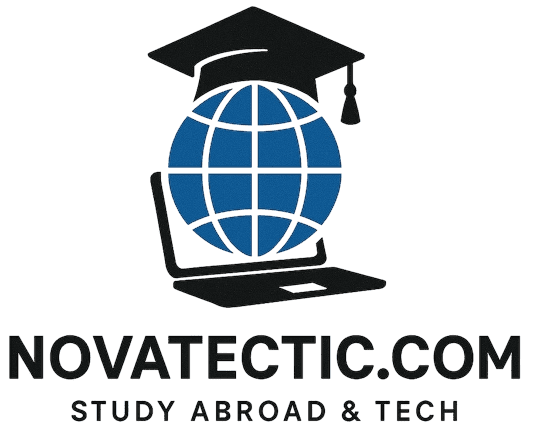Top Scholarships for International Students in Europe 2026
Introduction
Studying in Europe is a dream for thousands of international students each year. From world-renowned universities in Germany, the UK, and France to innovative programs in the Netherlands and Scandinavia, Europe offers a rich mix of academic opportunities. However, tuition fees, living costs, and program expenses can be challenging. Scholarships and financial aid play a crucial role in making European education accessible.
As a study abroad consultant with over 14 years of experience, I’ve guided students in securing scholarships that cover tuition, living costs, and even research opportunities. In this guide, we’ll explore top scholarships for international students in Europe, eligibility criteria, application tips, and how to maximize your chances of receiving funding.
1. Why Scholarships in Europe Matter
Europe is home to prestigious universities offering high-quality education. Scholarships are not only a financial relief but also a recognition of your academic excellence and potential. Benefits include:
- Tuition fee coverage: Many scholarships cover full or partial tuition.
- Living expenses: Some include allowances for accommodation, food, and travel.
- Networking opportunities: Scholarship recipients often gain access to special programs, mentorship, and alumni networks.
- Enhanced CV: Winning a scholarship demonstrates merit and commitment to your field.
Consultant Insight: Scholarships in Europe are competitive, but focusing on low-competition grants, country-specific awards, and early applications can significantly increase your chances.

Scholarships for International Students in Europe
2. Types of Scholarships for International Students
European scholarships fall into several categories:
- Government-funded scholarships
- Erasmus+ (EU-wide): Offers funding for master’s programs, exchange programs, and joint degrees.
- DAAD (Germany): Covers tuition, monthly allowances, and research support.
- Chevening (UK): Fully funds one-year master’s programs at UK universities.
- French Government Scholarships: Provides tuition waivers and living stipends for international students.
- University-specific scholarships
- Many universities like University of Amsterdam, ETH Zurich, and Sorbonne offer merit-based scholarships for high-performing students.
- Some programs include full tuition, accommodation, and travel allowances.
- Private and external scholarships
- Rotary Foundation Grants: For academic excellence and community service.
- Joint Japan/World Bank Scholarships: For students pursuing development-related programs.
- Eiffel Excellence Scholarship (France): Covers tuition and living costs for top international students.
Consultant Tip: Always check university websites for up-to-date scholarship offerings, deadlines, and eligibility criteria.

International Students in Europe 2026
3. Eligibility Criteria
Eligibility requirements vary depending on the scholarship type, but common factors include:
- Academic performance (GPA, standardized test scores)
- Field of study (STEM, business, arts, or social sciences)
- Nationality restrictions (some scholarships target specific countries)
- Language proficiency (English, French, German, or local language)
- Leadership skills, community involvement, or research experience
Pro Advice: Maintain a strong academic record and document extracurricular activities. Some scholarships require motivation letters or interviews.
4. Application Tips for European Scholarships
Securing a scholarship requires careful planning and attention to detail. Consider these steps:
- Start early: Most European scholarships open applications 8–12 months before program start dates.
- Tailor your application: Customize your motivation letter and CV for each scholarship. Highlight achievements relevant to the scholarship’s purpose.
- Proofread and review: Errors can reduce credibility. Use professional formatting and clear language.
- Gather strong recommendation letters: Request letters from professors, mentors, or employers who can vouch for your academic and personal strengths.
- Submit all required documents: Missing documents can lead to automatic rejection. Keep certified copies ready.
Consultant Insight: For competitive scholarships like Erasmus+ or Chevening, emphasize your international exposure, leadership, and future career plans.

Application Tips for European Scholarships
5. Top Scholarships for International Students in Europe
Erasmus+
- Covers tuition and living costs for exchange or full-degree programs in Europe.
- Available for bachelor’s, master’s, and doctoral students.
- Application through your home university or host institution.
DAAD Scholarships (Germany)
- Full or partial coverage of tuition and monthly stipend.
- Includes health insurance, travel allowances, and research support.
- Ideal for STEM and development-related programs.
Chevening Scholarships (UK)
- Fully funds one-year master’s programs at any UK university.
- Covers tuition, travel, and living expenses.
- Strong focus on leadership and community impact.
Eiffel Excellence Scholarship (France)
- Covers tuition fees and living expenses.
- For top international students in engineering, economics, law, and political science.
University-Specific Scholarships
- Examples: University of Amsterdam, ETH Zurich, Sorbonne University, KU Leuven.
- Merit-based, often includes tuition waiver and monthly stipend.
Consultant Tip: Apply to a mix of government, university, and external scholarships to maximize chances.
6. Common Mistakes to Avoid
- Missing deadlines: Late applications are automatically rejected.
- Generic motivation letters: Always tailor to the scholarship’s objectives.
- Incomplete documents: Double-check every required attachment.
- Ignoring eligibility: Ensure you meet nationality, GPA, and language requirements.
- Weak references: Choose recommenders who know you well and can speak confidently about your skills.
7. Beyond Scholarships – Other Funding Options
Even if you don’t secure a full scholarship, there are alternative ways to fund your European education:
- Part-time jobs: Many countries allow international students to work 10–20 hours/week.
- Assistantships: Research or teaching assistant positions can offset tuition.
- Student loans: Some international banks and government-backed programs offer low-interest loans.
- Crowdfunding or sponsorship: Platforms and local organizations may support exceptional candidates.
Pro Tip: Combine scholarships with other funding sources for a secure financial plan.

Preparing for Scholarship Interviews
8. Preparing for Scholarship Interviews
Some scholarships, especially prestigious ones like Chevening or DAAD, may require interviews:
- Practice common questions: Why you chose the country, your career goals, leadership examples.
- Present confidently: Maintain eye contact, clear speech, and concise answers.
- Highlight unique achievements: Focus on research, volunteering, or projects that set you apart.
Conclusion
Scholarships can transform your dream of studying in Europe into reality. With careful planning, targeted applications, and expert guidance, international students can secure funding to cover tuition, living expenses, and even travel. Begin early, maintain organized documentation, and present yourself confidently as a motivated, high-achieving candidate.
Europe offers a world of opportunities—scholarships make these opportunities accessible. Start your journey today, and let your global education dream come true.









